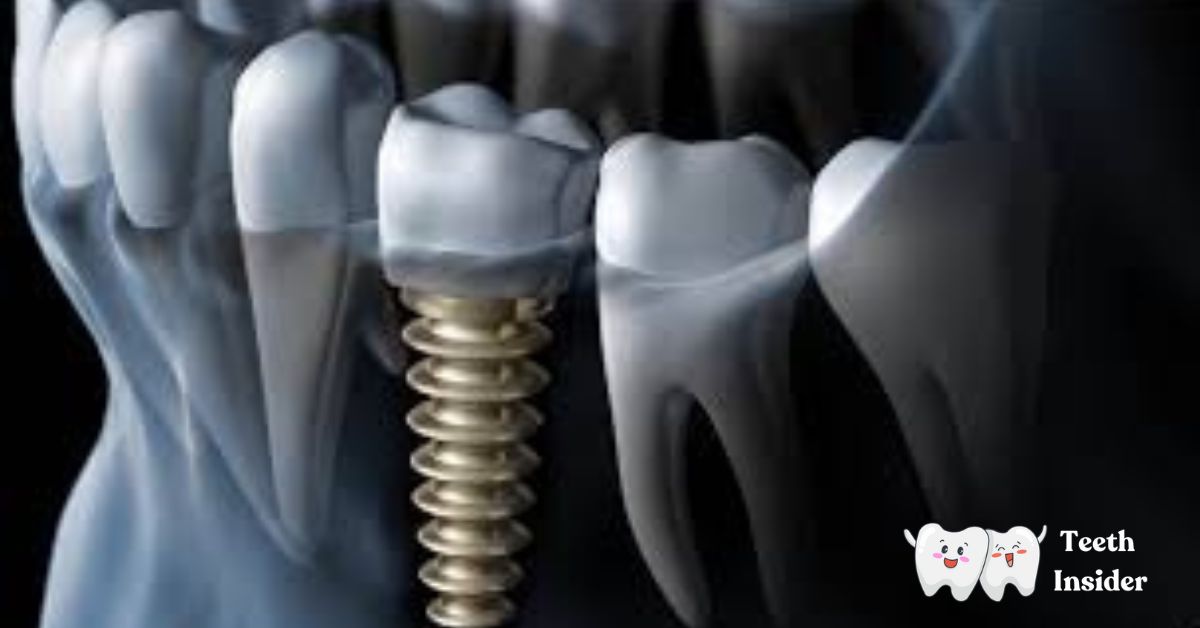With a success rate of roughly 95 to 98 percent, dental implants—hailed as a contemporary miracle in dentistry—are typically a dependable option for replacing missing teeth. Dental implants have a high success rate, however there is a little possibility that they won’t work. In the event that this occurs, you may be wondering if it is possible to repair failing dental implants.Can Failed Dental Implants Be Replaced?. Let’s investigate this query and your choices.
Understanding Dental Implant Failure
It’s important to first comprehend the potential causes of dental implant failure. Implant failure can be caused by a number of reasons, such as:
- Insufficient bone support: For dental implants to integrate properly, there must be enough bone support. The implant may fail if the jawbone is not dense enough or has insufficient volume.
- Health issues: The healing process following implant surgery can be hampered by certain medical disorders, such as diabetes or gum disease, which raises the possibility of failure.
- Poor dental hygiene: Inadequate oral hygiene Dental implants may become unstable as a result of issues like infection brought on by poor oral hygiene.
- Surgical errors: Implant failure may also be the consequence of errors committed during the implantation process.
Signs of Dental Implant Failure
For prompt management, it is essential to identify the warning indications of dental implant failure. Typical symptoms include the following:
- Continuous soreness or agony when chewing or biting.
- Gum inflammation, suggesting the possibility of an infection.
- Implant mobility or looseness.
- Difficulty biting or chewing, which could indicate a malfunction with the implant.
- It’s critical that you see your dentist right away if you have any of these symptoms so that they can be evaluated and treated appropriately.
Also Read: What Are Dental Implants? Types, procedures, and more

Treatment Options for Failed Dental Implants
Let’s now tackle the important query: may dental implants that fail be replaced? Yes, most of the time, but it also depends on the particular situation. Here are a few potential course of treatment:
Replacing Implants: In cases when the failed implant is salvageable and the surrounding bone is in good condition, your dentist might suggest getting a replacement implant installed.
Bone Grafting: Before trying implant replacement, bone grafting may be required in cases where bone loss has occurred in order to augment the jawbone.
Other Reconstructions: Bridges are alternative dental restorations that might be considered to restore your smile and functionality if implant replacement is not practical.
Related article: When to Take a Pregnancy Test After Implant Removal? Complete Guide
Preventing Dental Implant Failure
Although the failure of dental implants is not common, there are precautions you may do to reduce the risk:
- To ensure proper dental health, practice consistent brushing and flossing.
- Don’t smoke because it can impede the healing process and raise the possibility of implant failure.
- Pay close attention to the post-operative instructions that your dentist gives you.
- See your dentist on a frequent basis to ensure that any abnormalities are detected early and monitored.
Can Failed Dental Implants Be Replaced?
Yes your dentist might be able to replace your implant right away if the bone surrounding it is still in place after carefully cleaning the area. Before getting a new implant, you could need a bone graft if you’ve lost bone, which takes many months to mend.
Also Read: Why No Dairy After Dental Implant? Your Guide

Conclusion
Even though losing dental implants can be depressing, they can frequently be replaced with new ones if the right care is given. You can improve your chances of a successful implantation and continue to reap the rewards of a healthy smile for years to come by being aware of the reasons for implant failure, identifying the warning signals, and taking preventative action.
Also read: Free Dental Implants For Low Income UK Residents
Frequently Asked Questions (FAQs)
What happens if dental implants fail?
Dental implants may result in discomfort, swelling, or limited mobility if they fail. To restore oral function and aesthetics, replacement or alternative therapies could be required.
What are the signs of dental implant failure?
Pain, irritated gums, implant movement, and trouble biting or chewing are indicators of dental implant failure.
Why do dental implants fail?
Medical problems, poor oral hygiene, insufficient bone support, and surgical errors during implantation can all lead to the failure of dental implants.
What is the failure rate of dental implants?
Studies indicate that less than 5% of dental implants fail over the course of ten years for a variety of reasons.
Who is responsible for dental implant failure?
Diverse factors can contribute to dental implant failure. Failure may be caused by elements like the dentist’s actions and the patient’s oral hygiene.
For more information Click here…

